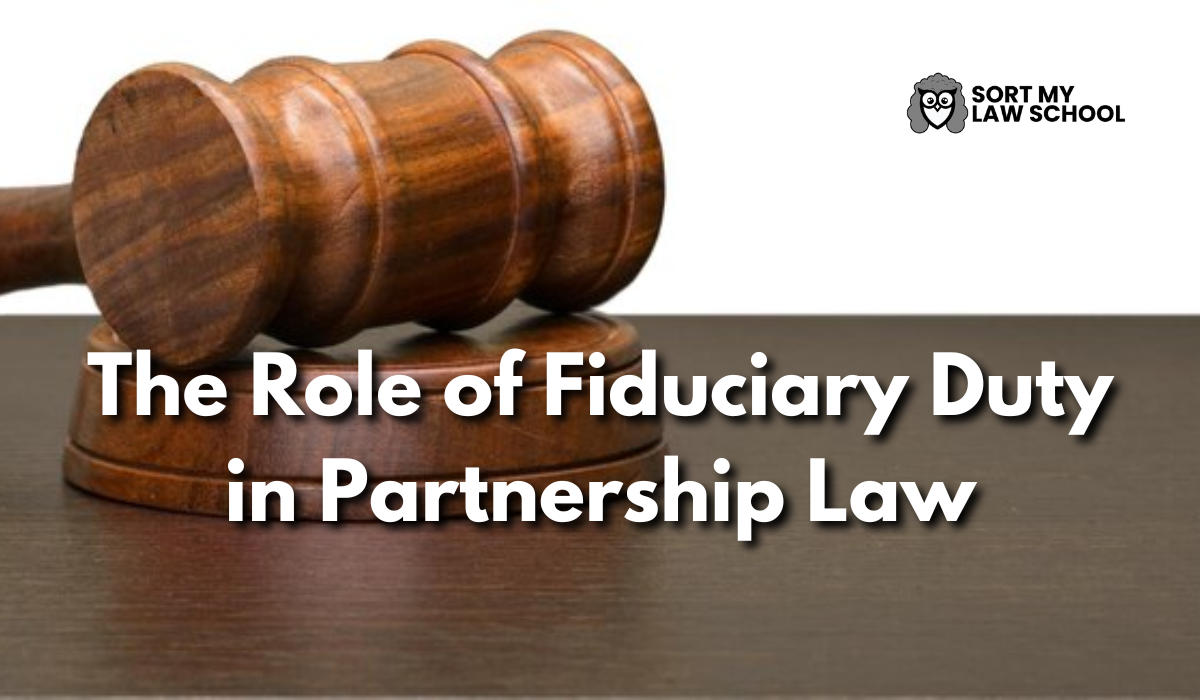
A partnership is not a distinct legal entity but rather a relationship where two or more individuals collaborate in business with the aim of generating profit. In Partnership Law, unlike separate legal entities, a partnership exists solely through its partners, who act as each other’s agents and owe fiduciary duties to one another. These fiduciary duties encompass the obligation to act with the highest degree of good faith.
Definition of a Fiduciary Relationship
Although there is no specific legal definition for the duty of utmost good faith in Partnership Law, it is generally understood to encompass several key responsibilities similar to those required of company directors. These responsibilities include:
- Honesty: Partners must act honestly towards each other.
- Beneficial Action: Partners should always act in the best interests of their fellow partners.
- Conflict of Interest: Partners are prohibited from placing themselves in situations where their personal interests conflict with those of the partnership.
- Full Disclosure: Partners must fully disclose any information that could be relevant to their fellow partners.
- Avoiding Unauthorized Profit: Partners must not make any unauthorized personal gains from the partnership.
So a fiduciary relationship is a confidential relationship established by equity to promote good conscience and justice in Partnership Law. The Supreme Court held in Jaya Singh v. Krishna that when a person in a fiduciary position gains a personal advantage by exploiting their role, they must hold any resulting profits for the benefit of the person who has been disadvantaged or whose rights have been compromised.
Fiduciary relationship as per the Partnership Law
The entire framework of Partnership Law and the responsibilities of partners are founded on the principle of fiduciary relationships. This principle mandates that every partner must act with fairness and integrity towards one another and strive to serve the best interests of the firm as a whole. According to Section 37 of the Partnership Law, 1932, the relationship between current and former partners is inherently fiduciary, arising from their jural relationship.
Furthermore, Section 88 of the Indian Trust Act, 1882, acknowledges and reinforces this fiduciary principle, establishing its statutory basis in Partnership Law. In the case of Gopinath v. Satish Chandra (Allahabad High Court), it was held that partners owe a fiduciary duty to the representatives of a deceased partner, specifically regarding the deceased’s interest in the partnership property. This decision underscores that fiduciary duties extend beyond the lives of the partners. These duties must be honored even in the context of the deceased partner’s estate.
Elements of a Fiduciary Breach Claim
To establish a claim for breach of fiduciary duty, certain legal elements must be demonstrated. While requirements can vary by jurisdiction, the following four elements are typically essential for a plaintiff to succeed in such a claim:
Existence of a Fiduciary Duty
The plaintiff must prove that a legal fiduciary relationship and duty existed in Partnership Law. Fiduciaries are individuals or entities legally obligated to act in the best interest of another party. This duty is often formalized in writing. While many professionals are ethically required to act honestly, not all have fiduciary duties that necessitate prioritizing a client’s interests above their own.
Occurrence of a Breach
The plaintiff must demonstrate that the fiduciary duty was breached. Breaches can vary in nature. For example, an accountant may breach their fiduciary duty by carelessly preparing a client’s tax return. This can result in significant penalties for the client. Conversely, if the client failed to provide essential information, no breach occurred on the accountant’s part.
Sustained Damage
The plaintiff must show that the breach of fiduciary duty in Partnership Law caused actual harm. A claim generally requires proof of damage, as mere breach without resulting damage is insufficient. Detailed evidence of the harm suffered is crucial. For instance, if a trustee sells a beneficiary’s property at an undervalued price to a relative, it can cause a financial loss. Specific accounting of the loss is needed to substantiate the claim.
Proving Causation
The plaintiff must establish that the damages were directly caused by the breach of fiduciary duty. In cases such as the undervalued property sale, the link between the breach and the harm is apparent. The trustee might argue that the sale was in the beneficiary’s best interest. This argument is based on the lack of other buyers. Proving causation involves demonstrating that the breach directly led to the plaintiff’s damages.
To understand various duties and responsibilities of partners through landmark cases,visit Sort My Law School Website.




